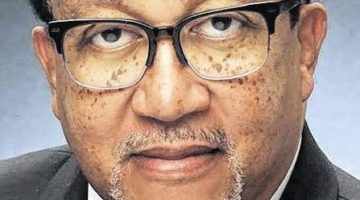NEW YORK (AP) – U.S. businesses might be able to secure bank deposit insurance for accounts holding more than $250,000 if Congress agrees with the Federal Deposit Insurance Corp.’s new proposal to ease the industry turmoil that has sparked three bank failures in the past two months.
The FDIC recommended the change Monday, rethinking the decades-old limit and seeking more flexibility to cover higher deposits on a “targeted”
basis. Raising the insurance limit for business accounts that pay for company operations such as payroll would shore up accounts that pose the most risk to financial stability, the FDIC said.
The proposed change appears to openly acknowledge that the FDIC is looking for ways to calm both depositors and markets as the agency contends with the third bank run this year. First Republic Bank became the second largest failure in history Monday when regulators seized it and JP Morgan Chase stepped up as a buyer.
“The recent failures of Silicon Valley Bank and Signature Bank, and the decision to approve Systemic Risk Exceptions to protect the uninsured depositors at those institutions, raised fundamental questions about the role of deposit insurance in the United States banking system,” FDIC Chairman Martin J. Gruenberg said in a statement accompanying the regulator’s recommendations.
The FDIC is a government agency formed during the Great Depression to restore faith in U.S. banking institutions. As of December, more than 99% of U.S. deposit accounts held less than $250,000, and so were automatically covered by existing FDIC insurance, Gruenberg said.
However, the system remains subject to the sort of bank runs that brought down First Republic, despite a consortium of big lenders having pooled $30 billion in cash to stabilize the bank as recently as March.
Last Monday, First Republic reported its first-quarter results, shocking investors when it revealed that depositors had withdrawn $100 billion, most in midMarch immediately after Silicon Valley Bank and Signature Bank failed. First Republic’s stock plunged more than 50% the day after the report. U.S. Rep. Patrick McHenry, who leads the House Financial Services Committee, issued a statement Monday noting that the FDIC “used its available tools to resolve First Republic Bank” but the congressman didn’t immediately address the agency’s recommendations for change. In seeking additional powers to insure business accounts, the FDIC said technological advances both hasten the speed of information and let depositors quickly take their money elsewhere at the first sign of trouble. Both factors can spur “faster, and more costly, bank runs,” the agency said.











No Comment